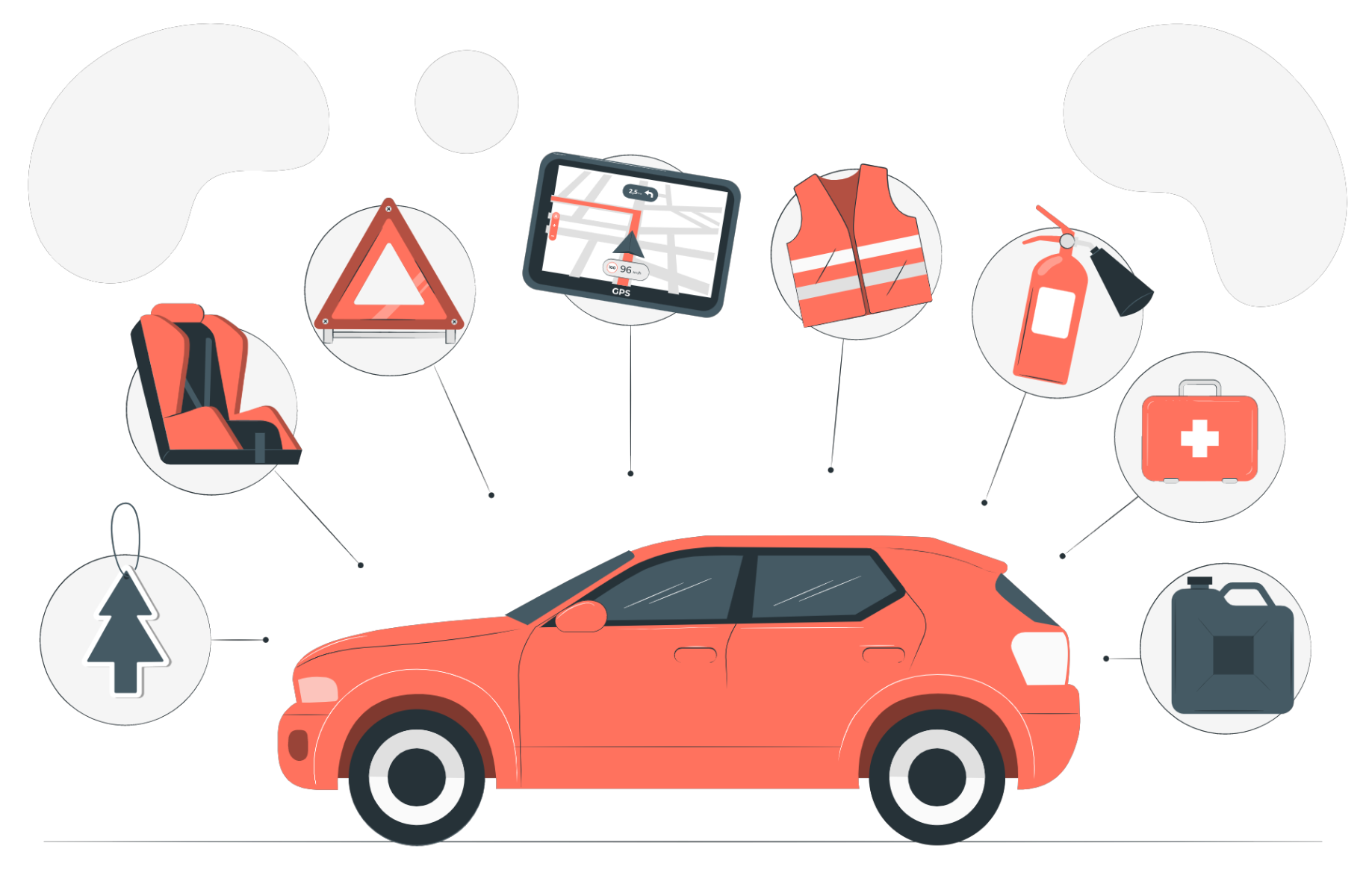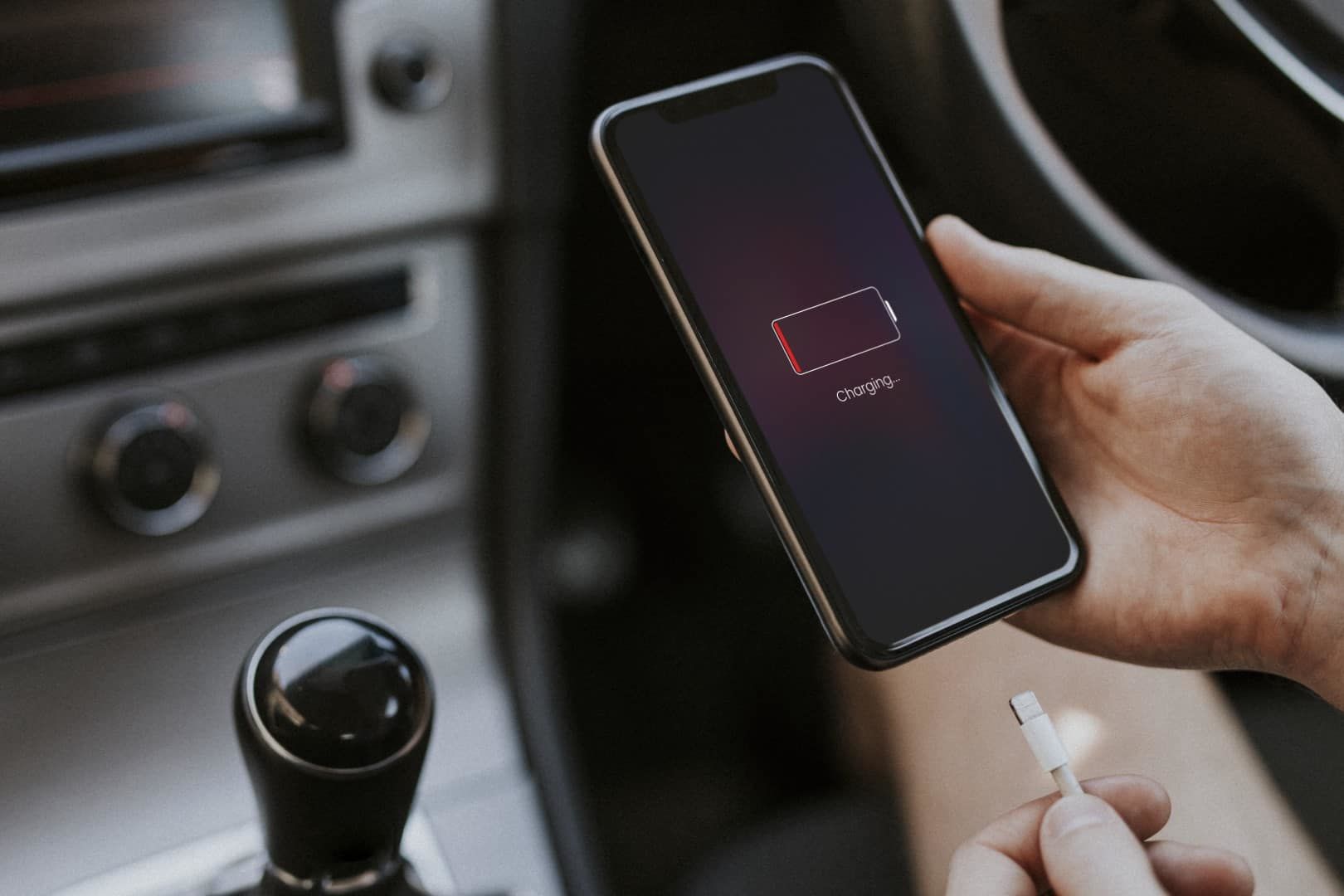Always Be Prepared: What to Keep in your Vehicle in Case of Emergency
April 25 2023, Hickman Automotive Group

When life throws a curveball, it’s always best to be prepared — especially when it comes to your vehicle. Whether it’s a sudden storm or an unexpected breakdown, emergencies can happen at any time, and it’s crucial to know how to handle them. Read below as we guide you through our tips that will help you stay safe, calm, and confident during any roadside emergency. Buckle up and let’s dive in!
Keep an Emergency Car Kit in Your Vehicle
When you’re on the road, it’s important to be prepared for anything. That’s why it’s a good idea to keep an emergency car kit in your vehicle at all times. This way, if something happens and you have to spend the night somewhere other than home, or even just need some extra supplies during a long drive, then you’ll have everything on hand.
Items to include in your kit:
A change of clothes (including socks)
Snacks and water (in case there aren’t any restaurants or stores nearby)
First aid supplies like bandages and antiseptic wipes
Flashlight / extra batteries (a power bank is also a good investment)
Blankets
Small shovel / snowscraper
Seat Belt Cutter / Window Breaker
Tow Rope / Jumper Cables
Road Flares / small pilons
Anything else that will keep you comfortable
Check Your Vehicle Before You Leave
Before you leave on a long haul across Newfoundland or beyond, make sure that your vehicle is in good working order and capable of tackling your trip. Check the tire pressure and visually inspect the vehicle for any possible issues. Make sure there is enough fuel in the tank, and if you’re going far off the beaten path, it might be best to bring an extra jerry can of fuel just in case. If you find any problems or have any questions, it would be best to take your vehicle to your local dealership to ensure that all issues are resolved.
Stay Informed
Keeping up with the news and weather forecasts is a great way to stay informed about potential emergencies. Take note of any rain, drizzle, and foggy weather systems that may be rolling in to your area. It’s also a good idea to keep an eye on facebook and twitter, as many people use it as a way to communicate quickly during emergencies.

Keep a Charged Cell Phone
Keep a charged cell phone in your vehicle or at least have a power cable available. If you’re stranded on the side of the road, it’s important to have a way to call for help. Make sure that someone who can be reached in an emergency has your number. If possible, keep a power bank in your vehicle for your cell phone so that if it dies while you’re on the road and you can’t get home soon enough, at least one person will know where you are to help out.
Download a Map of the Area
You never know when you might need to get out of town fast. If there’s an emergency and you need to find an alternate route, it’s always good to have a map of the area on your cell phone or tablet. If your car breaks down on the side of the road, having a map can help with more than just finding your way out – it can also tell you where nearby gas stations are located so that when it comes time for repairs (or just getting some gas), there won’t be any surprises in store for you.
Know Your Vehicle’s Limitations
If there is a dirt road that starts to narrow or become too overgrown, it might be best to reconsider your path. Your vehicle does not behave as well as an ATV when you’re headed to the cabin! Be aware of your vehicle’s limitations and don’t push it too far – especially if you’re too far from town to get a tow.
On another hand, if you plan on pulling a trailer or your camper, make sure that it’s within the weight limit of your vehicle and that you can effectively control your load. You don’t want to ruin your weekend getaway because you decided to haul your pop-up camper with a Honda Civic!
Bring a Friend
If you’re going on a long trip, it’s always a good idea to bring a friend along. Not only will you have someone to talk to and share the driving with, but you’ll also have someone who can help in an emergency situation. If your car breaks down or gets stuck in the snow or mud, having another person there can make all the difference.
Emergencies can happen to anyone, but with a little preparation you can tackle them head-on. By keeping an emergency car kit, inspecting your vehicle, and staying informed, you’ll be well-equipped to handle any situation that may arise on the road. Remember, it’s always better to be safe than sorry. Safe travels!

